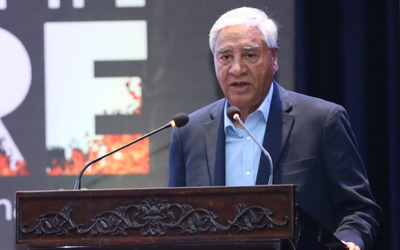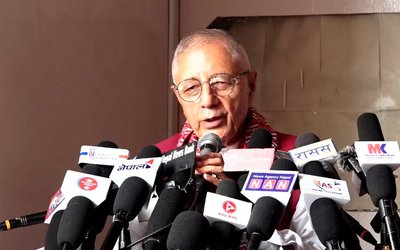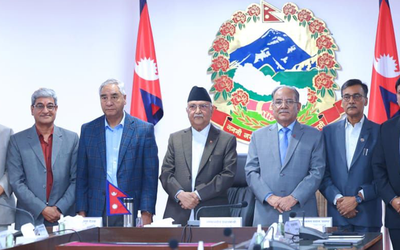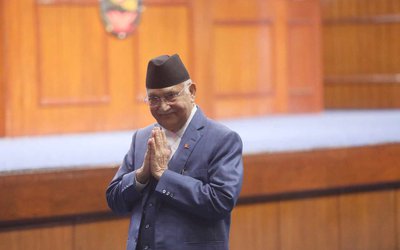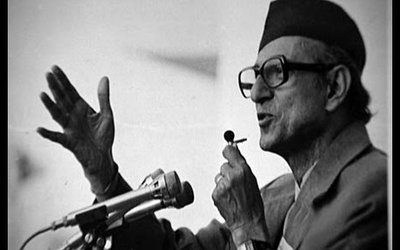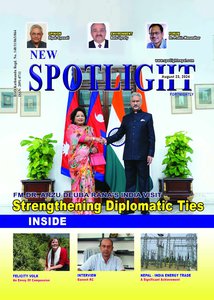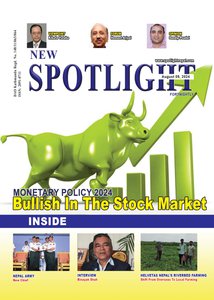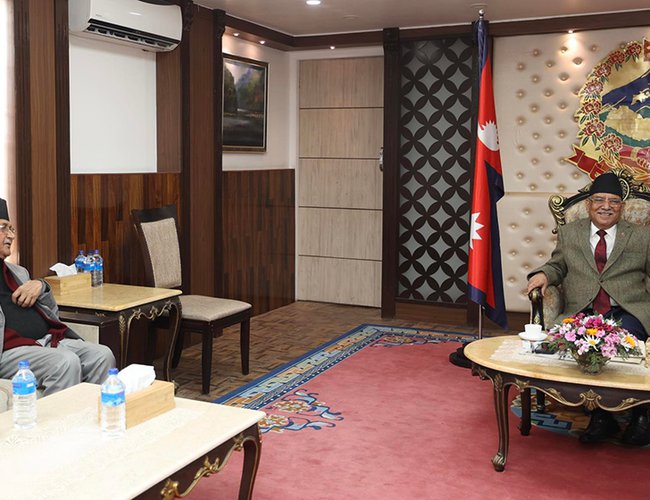
Prime Minister Pushpa Kamal Dahal Prachanda has paid frequent and regular visits to UML leader KP Sharma Oli's residence over the past month, and Oli has reciprocated. As the Election Commission has set March 9, Prachanda and Oli are trying to build a consensus on candidates.
As the election date for the new President approaches, PM Prachanda and UML leader Oli are attempting to bury their differences over the candidate, which is widening.
Voting Structure
The new president will be elected by the members of the Federal Parliament and the Provincial Legislatures. There are a total of 884 votes which include 275 House of Representatives members, 59 National Assembly members, and 550 Provincial Members from seven provinces.
As with national politics, no single party now has a clear majority to elect the President. Only a coalition of more than two parties can make a victory in the elections.
Out of 275 members of the House of Representatives (165 FPTP and 110 PR), the Nepali Congress 89, the CPN-UML 78, the Maoist Center 32, the Rastriya Swatantra Party 20, the RPP 14, the Unified Socialist 10, the Janta Samajbadi Party 12, the Janta Party 6, the Loktantrik Samajwadi Party 4, the Rastriya Janmorcha 1, and the Nepal Majdoor Kisar Party one and 4 independent.
CPN-UML holds 18 seats in the National Assembly, followed by the Maoist Center (16), Nepali Congress (10), Unified Socialist (8), Samajbadi Party (3 seats), Loktantrik Samajbadi Party (1 seat), Independent (2 seats), and Rastriya Janmorcha (1 seat).
Similarly, NC has 176 provincial members out of 550 (330 FPTP and 220 PR), followed by CPN-UML 161, Maoist Center 83, Unified Socialist 22, RPP 26, Rastriya Unmukti Party 11, and Samajbadi Party 20, with the remainder going to others.
PM’s Trouble
The new government, formed two months ago and led by Prime Minister Prachanda, is already in crisis over who will be the next President.
Prime Minister Prachanda is surviving in an uncertain situation after the Rastriya Swatantra Party, led by television anchor Rabi Lamichhane, quit the government. He has begun talks with the CPN-UML-US, led by Madhav Kumar Nepal, and the Federal Socialist Party, led by Upendra Yadav, to fill the 20-vote gap.
While negotiations for a consensus candidate continue, some have suggested that former King Gyanendra be considered as a possible neutral candidate for the position of President.
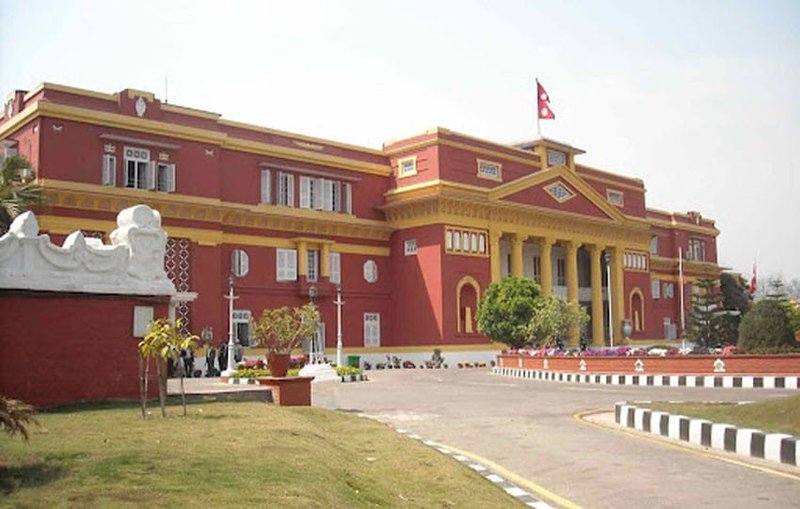
However, chairperson KP Sharma Oli has stated that the UML's candidate will be the next President. Speaking to reporters at Biratnagar, former Prime Minister Oli expressed hope that a consensus could be reached to ensure the victory of the UML's presidential candidate.
"On the day of nomination registration, we will make public the party's presidential candidate. "The current alliance will continue as it was formed with understanding and thought," Oli said. "There was also support from Prime Minister Pushpa Kamal Dahal's 'Prachanda' party to make UML's presidential candidate victorious."
While CPN-UML leader Oli emphasizes the UML's candidate, Nepali Congress leaders are also pressing for their own candidates for party president.
During a recent meeting, Nepali Congress General Secretary Bishwo Prakash Sharma stated that the NC's candidate would be the next president.
"The candidate from the NC ought to be the next president. There is no question about it, "said he. According to him, it was only right that the NC, as the largest party in the parliament, should hold the coveted position of President, who is in charge of upholding and enforcing the constitution.
At a meeting of the office-bearers of the ruling CPN (Maoist Centre), it was resolved to give PM Prachdna all authority to choose the candidate for president, even though the two major political parties Nepali Congress and CPN-UML are pushing their candidates.
According to Deb Guruing, a member of the party's politburo, "Party Head Pushpa Kamal Dahal 'Prachanda' would have the final say about the presidential election and candidate. When necessary, the prime minister will put the president's name forward.”
As the deadline for filing nominations for the election of the presidential candidate approaches, political parties are in frenzy. Prachanda, the chair of the CPN Maoist, has already accepted a mandate from the meeting.
Elections Program
Voter list publication 22, February
Final Voter List Publication 24
Filing nomination on 25 February
Publication of final candidate list on 28 February
Voting will take place On March 3 (10-15:00)
While the deadline for registering candidates for the election of the President approaches, other parties are, nonetheless, occupied in internal debates. All political parties assert that they desire a president chosen by national consensus. Each party, however, is free to make its own decision.
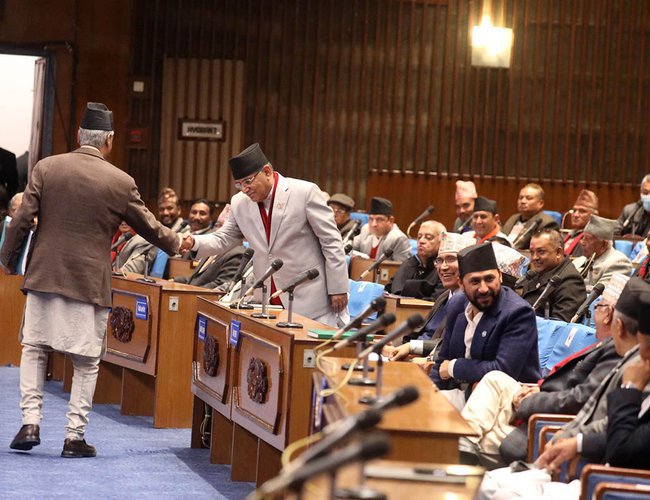
The time requires all those forces who were together during the signing of the 12-point Comprehensive Peace Agreement and the promulgation of the Constitution to stand together once more, according to Prime Minister and CPN (Maoist Centre) Chair "Prachanda" in a recent public remark.
He believed that a national consensus culture would help to ameliorate the problem. "National consensus should be used to handle the nation's problems, and it is in the same spirit to wish for political consensus concerning the elections of the President and Vice President."
The need for the major political parties to work together is undeniable, and we have a variety of options for fostering a culture of national consensus. Prime Minister Prachanda, he urged the major political parties to begin the next phase of the political process by reaching an understanding.
The Prime Minister stated that maintaining unity is once more necessary for those forces that came together during the creation of the Constitution and the CPA.
He stated there was a discussion going on about creating a socialist front and that a decision wouldn't be made until the party central committee meeting. "The front will be crucial in turning the nation's current issues into opportunities. Certain political parties are working on unification-related homework. We'll make a decision shortly, "Prachanda remarked.
Sher Bahadur Deuba, the leader of the Nepali Congress, has remained silent despite calls for consensus from the heads of the two largest political parties. Former Prime Minister Deuba made it apparent in an earlier speech that they should be handed the presidency to foster consensus politics.
As Nepal is about to elect a new President for the next five years – after Nepal went through a national election earlier in 2022, there is also growing concerned in the capital of both of Nepal's neighbors.
Following the visit of India's foreign secretary Kwatra, China dispatched a communist party minister. Some analysts link Chinese and Indian Foreign Secretaries’ visits to the upcoming Presidential elections.
Both visits were more political than diplomatic for them. At a time when the Prime Minister's position in Nepal has become extremely precarious due to frequent changes in government and ad hoc power-sharing arrangements devised by political parties, the position of the President has grown in importance and is viewed as a stable institution to work in times of crisis.
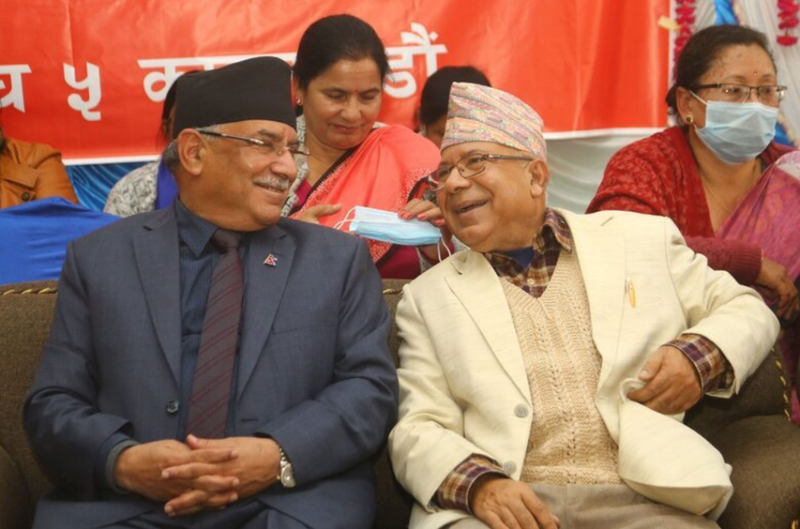
Although the President's position is only ceremonial and has limited authority, the institution can play an important role during a political vacuum.
During his first term, former president Dr. Ram Baran Yadav used his executive authority to choose the caretaker government and to reinstall the Nepal Army Commander who had been fired by Prachanda.
President Bhandari has similarly demonstrated the power of the ceremonial president by refusing to sign the Citizenship bill and to issue ordinances. This is the reason why the presidential election has received significant attention from both internal and external elements.
Given the makeup of the parliament and electoral system, there is a good likelihood that the nation will once again experience severe political instability. This could also be the cause of the President's institution becoming more significant.
- DASHAIN FESTIVAL : Festival of Unity
- Oct 04, 2024
- NEPAL-CANADA Bilateral Meeting
- Oct 04, 2024
- MIDDLE BHOTEKOSHI: Final Stage
- Sep 23, 2024
- UDIPUR SUBSTATION: Improve Quality Of Distribution
- Sep 19, 2024
- EK NARYAN ARYAL: Chief of Civil Service
- Sep 16, 2024


